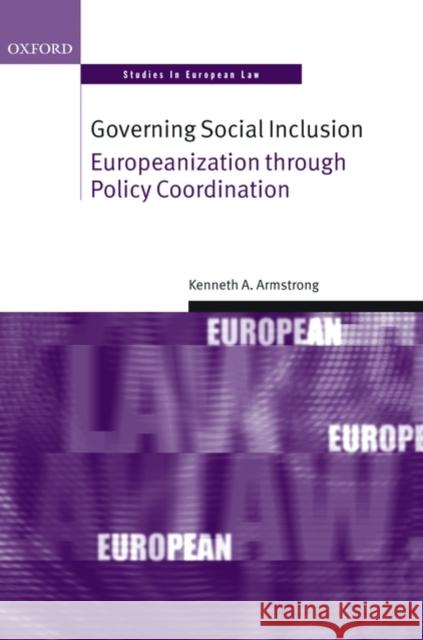Governing Social Inclusion: Europeanization Through Policy Coordination » książka
Governing Social Inclusion: Europeanization Through Policy Coordination
ISBN-13: 9780199278374 / Angielski / Twarda / 2010 / 250 str.
The pursuit of social solidarity and social justice has typically occurred within the boundaries of nation states. Yet in 2000, EU Member States committed themselves to make a decisive impact on the eradication of poverty and agreed to coordinate their activities within the framework of a novel governance process: the Open Method of Coordination (OMC). This book analyzes the emerging governance of social inclusion in the EU and the use of the OMC as a mechanism of Europeanization of domestic social policy.
Armstrong's exploration of EU interventions to combat poverty and social exclusion addresses the changing constitutional, policy and governance context in which these interventions have occurred. It traces the impact of debates surrounding the Lisbon Treaty and the Lisbon Strategy in framing the possibilities and limits of EU action. Drawing on primary documentary material, on interviews with key actors and on a wide range of academic literature, this study offers a socio-legal account of the successes and failures of a decade of EU policy coordination.
Utilizing the conceptual and theoretical tools associated with institutionalist analysis and experimental governance to develop the discussion of Europeanization, the book will be of value not only to scholars working on EU policymaking but also to those interested in changing patterns of public authority in the social sphere more generally.











